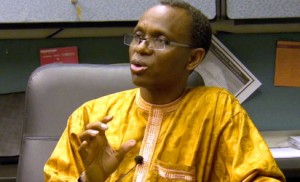Construct a concept too narrowly, and it promptly forfeits all claims to objectivity. Describe it too broadly, again, and the danger is that it is no longer generally applicable. In order to be useful, therefore, it helps to cleave religiously to the middle.
The State Security Service (SSS) failed this requirement when they hauled Nasir El-Rufai in for questioning over his Friday, July 1, 2011 contribution to the back page of ThisDay newspaper.
Construed too broadly, “incitement” is a charge that all advocates of change are guilty of. Truth be told, and in spite of the SSS’ exertions, in Nigeria, it is a charge to which we all must aspire. How else do we get things to change? At the centre, the problems have been well catalogued. And on the strength of El-Rufai’s recent experience, might not be worth repeating here (or ever). At the state level, the centre’s concern with ensuring that it remains the only reference of power in the country has ensured ventilation of the peccadilloes of a number of governors who have attempted to run ahead of themselves.
What about the local government level? Here, there’s no “voice” at all! Roads are in a state of disrepair. Primary health care facilities are desuetude. Government at this level is just absent. How to get government to be more responsible? Inform the people of the responsibility of governments at the sub-national level. Let them know how much the centre is providing to local governments to meet these responsibilities (as indeed the government at the centre did for most of the Obasanjo administration). And demand that the electorate force their representatives at this level to “ship up or shape out”. In other words, “incite” them!
If you deny “voice” to the electorate at any level, in other words, if they can no longer be “incited” to take umbrage at bad governments, then the option remaining is to vote with our feet; and leave the country. Now, this might not be the intended goal of the state security infrastructure. However, in Nigeria’s present circumstance (there are those of us who believe that the current administration is an atavistic throwback to the Shagari years) we may have to constantly hold government’s feet to the fire in order to get anything done. If this effort is met at every turn with this omnibus “incitement” charge, then the national dilemma is compounded.
For the public intellectual, this dilemma is worsened by the fact that since 1999 (even under the Obasanjo years), this is the first time that a talking head in a Nigerian newspaper has had the “book thrown at him” with so much showiness. We may be in for harder times than we had feared.
